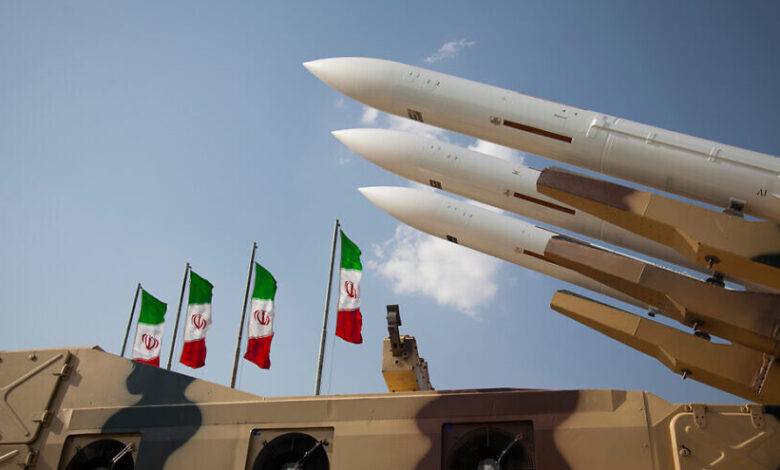
Initial assessments of the Iranian airstrikes against Israel….Would this signal the end of the altercation, or will it only intensify further? What lessons should Israeli governments and politicians draw from that incident
Prof. Saad Naji Jawad
Iran has finally carried out its awaited threat to revenge Israel’s attack against its consulate in Damascus which resulted in the assassination of Iranian Revolutionary Guard top commanders. Even though Iran claimed it was (limited), the response was neither straightforward, nor modest, or transient. Unspecified number of ballistic missiles and 200–300 drones were launched deep into occupied Palestine. Iran also seems to have wanted to Israel realize (perceive) how hard it will be to target its military leaders and locations both inside and outside of Iran.
Iran’s opponents will undoubtedly be appalled by this revenant accomplishment, which is remarkable by any measure given its magnitude, the quantity of drones and missiles fired, and the vital locations it targeted. Following the attacks, Iran’s adversaries have split into two camps. After mocking Iran’s initial threats for a while; the first group took a different track accusing Iran of coordinating its strike with Israel and the US to safe its face, and went as far as accusing it of trying to draw attention away from the situation in Gaza. They even described the attacks as conspiracy to ameliorate the bad reputation Israel has earned because of it crimes in Gaza, by presenting it once again as a victim. The second group, backed by the US and Israel, downplayed the significance of this attack and asserted that it did not achieve anything or caused any serious damage, (claiming that the majority of the missiles and drones were shot down by American, British, French and Jordanian fighters). This last claim (attitude) was not new for Israel, and could be considered as a well known Israeli policy practice (propaganda). Everyone recalls the aerial attack on Israel in 1991 during the Gulf war, in which Iraq fired forty-three missiles inside Israel. Israel denied any damage caused by the missiles.
Moreover, Israel and the opponents of Saddam Hussein regime mocked the attacks and ridiculed them as useless fireworks. Then, in 2021, on the 30th anniversary of that event, Israel permitted the release of images and videos that demonstrated the incident’s degree of realism, and the devastation it caused—it was acknowledged that it resulted in demolishing 7,500 buildings, injuring 230 Israelis, and claimed the lives of 74 others —as well as harm inflicted to the infrastructure of big cities like Haifa and Tel Aviv.
Despite the Israeli government’s assertion to the contrary, the Iranian attack was not ineffective. Through its media, Israel indirectly acknowledged that it was clearly well-planned and orchestrated. The fact that the strikes placed the US administration and all Israel on highest degree of alert, which is still in effect, both publically and formally, served as more evidence of how dangerous and harmful the incident was. An improved picture of the accuracy and gravity of the operation can be obtained from the press conference held by Israel’s military spokesperson. Anyone paid close attention to the man’s body language, facial expressions and subtle speech pattern could easily deduce that the attacks had a significant impact, at least morally, despite his claim that 99% of the missiles and drones were shot down.
Examining the events of the night of April 13/14, one must take into account a number of important elements. Firstly, this unprecedented offensive was launched from within Iran, and the Iranian leadership openly accepted it, (even though they claim it was a modest operation). More important it indicates that Iran has given up its prior tactic of relying on its loyal armed organisations in the area, which might be seen as a very significant change in the conflict between Iran and Israel
(Although there have been reports about drones sent towards Israel from Iraq, Lebanon and Yemen, it appears that their presence and impact were negligible). The second factor is Israel’s admission of the strikes’ ferocity and high level of coordination. It appears that the Iranian military command has used a range of drones and missiles, from simple, rudimentary ones to very advanced ones. From the standpoint of a layman, Iran’s initial strategy was to confuse Israeli defenses by using a large number of simple drones, while at the same time sending a small number of sophisticated ones to a certain military base and others to the Negev airbase, where they alleged it was used to kill senior Iranian generals. (Israeli and western media admitted the success of this strategy). The third factor is that Iran made it clear that, should it feel the need to retaliate against any future strikes by Israel or the USA, it would not think twice about conducting similar attacks. Fourth and lastly, the strikes showed once again how vulnerable the Israeli air defenses are, since it needed help from the air forces of the United States, Britain, and France to fend off the Iranian attacks.
On the other hand, President Biden was quick to suggest that Israel refrain from taking revenge for two reasons. First, he believes that Israel and its allies did a good job of handling the Iranian attacks, which were ineffective anyway [Sic]. Second, he worries that other players –particularly Russia, which is aligned with Iran – will try to enter the already unstable situation, intensifying the conflict and compelling the US to step in. However, he did indirectly support Israel’s choice to respond. This was made very clear by his declaration that the US will not take part in any Israeli reprisal strike. Put another way, Biden declined to tell Israel not to attack Iran while making it apparent that the US would not join such a move (this thinking is also related, connected to what is occurring in Ukraine).
Regarding Israel, anybody acquainted with its bloody (violent) past is aware that its existence and policies are based on retaliation and brutal measures. It views inaction as a sign of weakness and believes that the only way to retain its dominance and status as a strong entity is to react with extreme force. The greatest illustration of this kind of thinking is Netanyahu himself. (By the way a recent poll showed that 88% of the Israelis support the belligerent attitude of their military commanders, and call upon them to intensify the war against Gaza and the West Bank). Thus, Israel fails to acknowledge that the successful attack by Hamas in Gaza on October 7th has fundamentally altered the situation, and that the organization’s well known resilience has shown that every Israeli tactic –haughtiness and intimidation- used against the Palestinians since 1948 has been ineffective, and that the more drastic measures the Israeli army employs, the more likely it is that conflict will continue, worsen and spread.
The greatest problem for Netanyahu and his entourage of warmongers, though, is still that they haven’t been able to accept the fact that their army has lost in Gaza. Their various military and political plans, as well as their extreme actions and genocides, have all failed, and Israel’s reputation has plummeted both regionally and internationally, and that their only recourse is to concede defeat and work to acknowledge and protect Palestinian rights. It could be beneficial to remind Netanyahu and his radical supports of past colonial practices that involved their use of extreme measures to establish their dominance and their eventual admission of defeat; (France in Algeria, America in Vietnam, Afghanistan and Iraq, the racist regime in South Africa, not to mention other models in Latin America).
To be fair, a number of Israeli and Jewish writers, along with few retired military commanders, have written about the necessity of accepting that Israel has lost the battle of (al-Aqsa Flood) and that the occupying Israeli army is incapable of achieving the “victory” that its leaders have promised. However neither Netanyahu nor his team followed (heeded) these recommendations. It goes without saying that Netanyahu in particular refuses to accept this reality—not because he doesn’t know it, but rather because he is fully aware that doing so will bring his government to an end and put him on trial. The indictment will centre on his prior history of corruption, his inability to foresee the October 7th offensive, and the subpar performance of the armed forces under his command.
Last but not least, the ongoing hatred that Netanyahu and the radical elements of his administration harbor for the resistance in Gaza, Lebanon, and Iran pose a serious threat to the entire region, if not the entire world. Furthermore, Netanyahu’s delusion- which the USA, UK, and other European countries also hold- that they currently possess a unique chance to eliminate Iran’s nuclear programme and installations, are factors suggesting that there might be more chapters to the events of the night of April 13/14. Put differently the overall situation will persist in alternating between a state of cautious calm and absolute (all-encompassing) war one.





